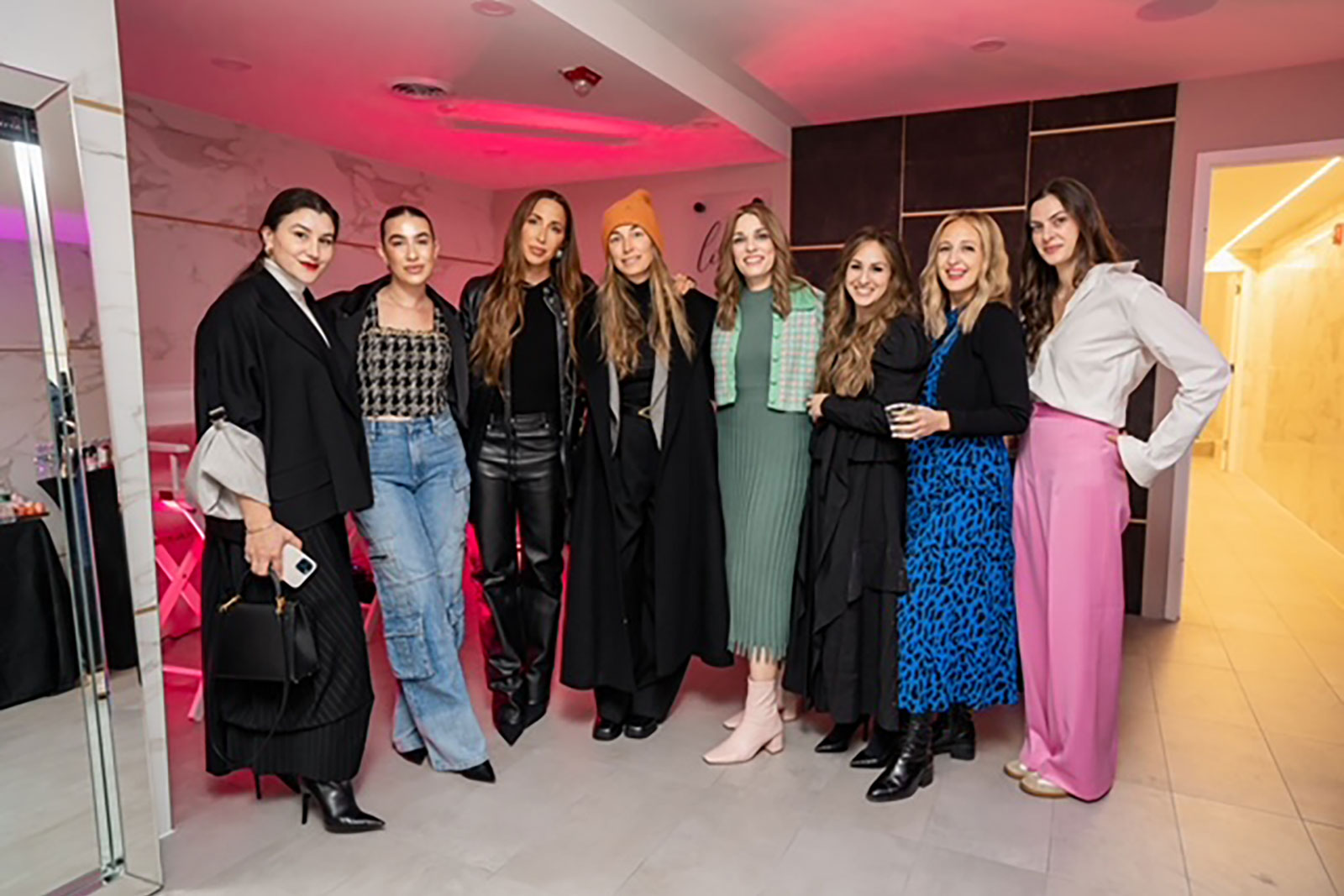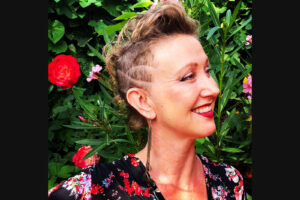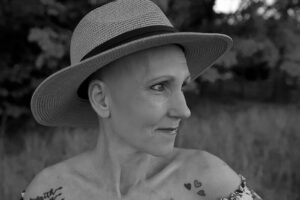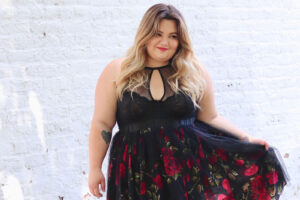Before Sarah Rotenstreich founded Livia Boutique, a nonprofit serving women with breast cancer, she focused on caring for her family and serving others. As the founder of Batsheva, an organization dedicated to empowering women in their careers, and the founder and executive director of Philip Berley Preschool of the Arts, her life was anything but laid back.
And it wasn’t about to get any easier. While on vacation in Hawaii for her niece’s wedding, Rotenstreich felt a lump in her breast while putting on a bathing suit. She had no history of cancer in her family and no other symptoms, but to be on the safe side, she made an appointment with her doctor when she came home. The results? Stage II breast cancer.
“I remember someone telling me that it’s blessed [to have] lots of problems,” says Rotenstreich. “The reason it’s a blessing is that when you’re worried about a lot of other things, it means there’s nothing super important that’s taking up all your brain space. I remember thinking about that after my diagnosis, because everything else took second place.” Nothing else was more important for Rotenstreich than getting herself and her family through her cancer journey. The drama and deadlines of daily life paled in comparison to what she was about to undergo.
Having five children between the ages of five and 17 at the time — including two sets of twins — meant that Rotenstreich had to figure out the best way to share the news of her cancer diagnosis with her children in a way they would all understand. “I think children are very savvy,” she says. “They pick up on things right away, so your best bet is to share with them age appropriately what is going on and give them space for questions. It was important for me that they [didn’t] see this as a secret or something we were hiding from the world.”
And yet, as many cancer warriors know, sometimes when it comes to supporting your friends and your family through the news of a cancer diagnosis, the support you show yourself falls to the side. Rotenstreich kept working through her cancer treatment — oftentimes going straight to work from chemotherapy or radiation appointments. “I just kept my life flowing in a very similar way, as much as possible,” she says. “I was focused on supporting my family, supporting my siblings, supporting my community, supporting the people who worked with me, and I had less time of actually thinking of what I needed to do to support myself.”
One of the first people Rotenstreich called after receiving her diagnosis was Nancy Brinker, founder of the breast cancer organization Susan G. Komen for the Cure. Rotenstreich’s organization, Batsheva, hosted a gala for 500 women, with Brinker as one of the honorees. “I had just met the woman who founded this huge organization for breast cancer, and she was my first phone call,” says Rotenstreich. “I was like, ‘OK, Nancy, what do I need to know? Which doctor do I go to?’ Just having a network in your life is very important and very supportive.”
But as Rotenstreich knows, sometimes that support can be hard to come by, even in the most unlikely places. When she was first shopping for clothes after her mastectomy, she visited a boutique inside of a large hospital, and the experience was negative. “I went in, and it was very clinical feeling,” she says. “[The employees] were a bit abrupt, and what I needed in such a vulnerable time was just a little bit of love, sensitivity and softness.” Instead, Rotenstreich says her experience was “abrasive, abrupt and very humiliating” — and it takes a lot to humiliate her, she explains.
Despite the negative experience, it was the catalyst to help her conceive of what would eventually become Livia Boutique — a place specifically catered to cancer warriors and thrivers. “I really knew with certainty, it wasn’t even a question in my mind, that this was something I was going to do,” she says.
She spoke with doctors, breast cancer warriors and thrivers to help build her vision of how she could provide this community with what she felt was missing from her own cancer journey. She asked herself, What did breast cancer warriors need that wasn’t easily accessible to them?
“Doctors are amazing at saving your life,” says Rotenstreich. “It’s what we want right then and there, but what they don’t necessarily touch upon is quality of life or making the aftereffects [of cancer] more manageable or gentler.” So, she began reaching out to brands and companies to partner with — for anything from lingerie to products that help women after surgery, chemo or radiation. “There are a lot of little things you could do to make the whole process more comfortable, and that’s the focus of the boutique. How to make post-mastectomy, post-chemo, post-radiation a little easier than it has to be,” Rotenstreich says.
Located in Chelsea, New York, Livia Boutique is delightfully intimate — reaching capacity at 20 to 25 people. Rotenstreich describes it as “one big hug,” but it’s a place for empowerment as well. “Livia” means “lioness” in Hebrew, and Rotenstreich wants to make sure that she can help provide beauty and strength to women on their cancer journeys. “I think it’s so nice for a cancer patient to feel like someone should just catch them, without any explanation or responsibility one way or another,” she says. “I’m here for you, I got you, whatever you need, this is your space, and that’s what I’m looking to provide for the people who come through our door.”
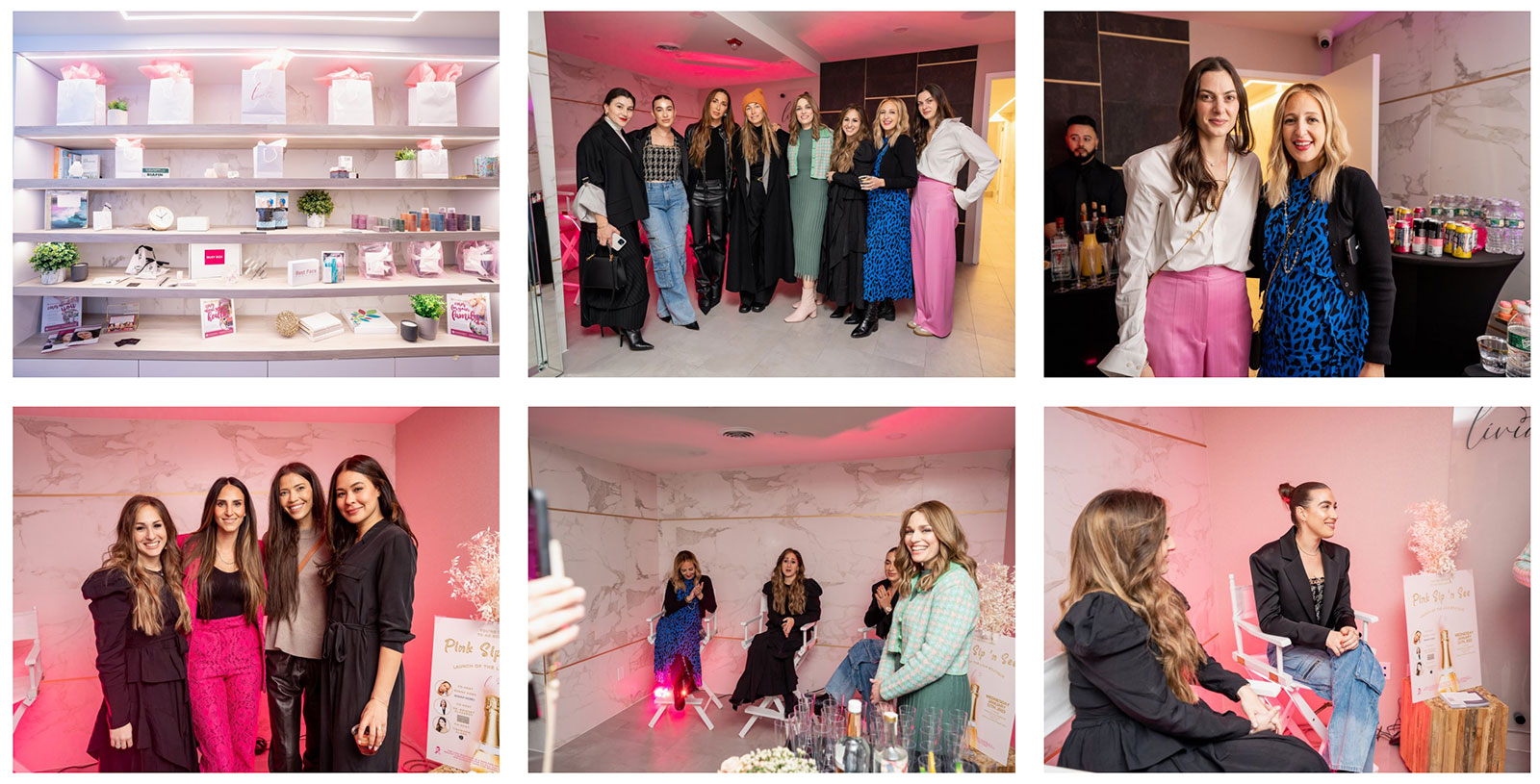
Rotenstreich remembers her own cancer treatment and how at her last radiation appointment, she expected to feel excited she was finally done with treatments. Instead, she felt overwhelmed. For so much of her journey, she was focused on getting better, but there was no focus on the “after.”
“You’re left with a body that’s changed, or skin that barely moves, or arms that don’t raise as high,” she says. “So much of your life changes on a day-to-day basis, and people don’t recognize that when treatment is over, your life has been altered, not just at an emotional level, but very physically you’re a different person too.”
That’s another aspect that Rotenstreich wants to address at Livia Boutique: the “now what.” What happens when treatment is finished? Rotenstreich explains there are so many post-treatment experiences that women go through that are overlooked, because the cancer is gone, so shouldn’t you feel better? Not quite so, she says. She aims to alter this outlook and include the many ranges of the cancer experience, from pre-treatment to post-treatment and all the challenges that come with each category.
Being an in-person boutique was also one of Rotenstreich’s goals. “There is a lot of info that comes your way that you need to learn how to filter, that you need to learn how to put back on that person in a kind, gentle way. And I wanted a space for the women to just exhale. Literally exhale. Come in and breathe, this is your space.” Rotenstreich believes there is a potential negative of living in the digital age, where everything is online. While there are many benefits to that, she notes, sometimes human connection can get lost amidst technology. Rotenstreich’s hope is that cancer thrivers will feel less alone and more connected to themselves and each other in the in-person space she’s created.
[P]eople don’t recognize that when treatment is over, your life has been altered, not just at an emotional level, but very physically you’re a different person too.
In addition to having beauty and wellness items for pre- and post-treatment needs, Livia will also carry mastectomy products and packing lists for the hospital. The inspiration behind the products in the boutique came from a WhatsApp group of breast cancer survivors of similar age to Rotenstreich. “I felt like I had a testers club,” she says. “I got everybody to share [their] favorite product or favorite support [they received], the best item [they] took to the hospital, and we’ve been creating resources based on a group that’s been using [these items]. There’s no guesswork in what we’ve been designing for the boutique; it’s all been my own personal experience or experience by other patients.”
Products curated specifically for post-mastectomy include robes that have pockets for drains, sweatshirts with inside pockets so you can get dressed after surgery, and creams that help with scars and radiation burns. “My goal is to showcase [these products], and then lead [people] to wherever they need to get them. If someone wants to get it out of town, they can; if someone wants to try it, share it… It’s really just a resource. It’s not a business,” Rotenstreich says.
Overall, however, Rotenstreich wants breast cancer warriors to feel comfortable in their own skin, and to learn how to listen to their body and honor those needs. She hopes Livia Boutique can be a quiet space where women can listen to their inner voice. “I do believe that when we pause long enough to listen to our own inner voice,” she says, “we know what’s best.”

